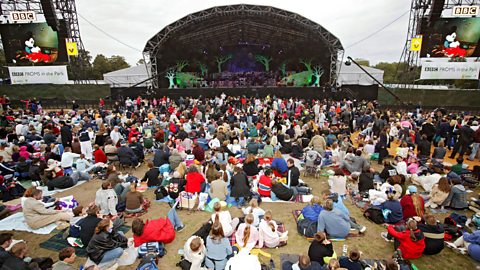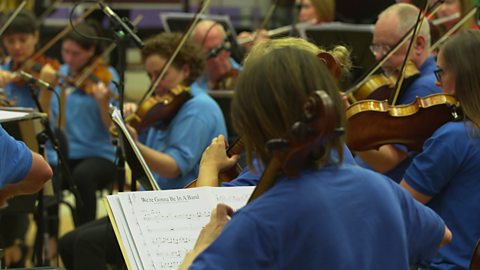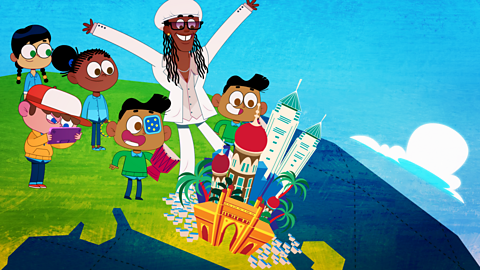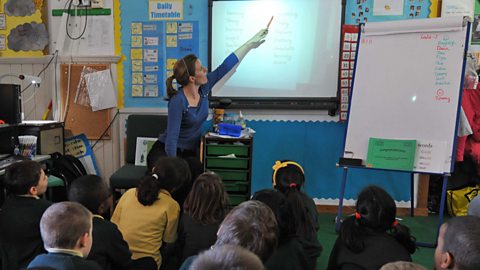By Andy Smith
Most of us come across music pretty much every day, whether that be on the radio, TV or a busker on the street. But why is it so important?
Composer, musical director, educator and panelist on our BBC Teach Bring The Noise How do I teach music if I’m not a musician? - Live, Andy Smith, has put together five reasons why everyone should have music in their lives.

1. Music brings people together
Music creates social cohesion, it speaks to all when words can fail, and wherever you go in the world, it is understood. Music is a universal gift and its power to connect people is without question. It is an art form with human interaction at its centre.
As I write this, I am travelling to Sweden to create music with some young people who have profound mental and learning disabilities. Regardless of the geography and lack of verbal communication, we will communicate, create and celebrate through sound and music.
Music has the ability to bring people together by the instruments they play, a shared interest in a particular style of music and who doesn’t love the spine-tingling sounds of a huge orchestral crescendo? We all have been known to move our feet irresistibly to the rhythm of a drum beat or singing our hearts out to encourage our favourite sports team!


2. Music improves your health and wellbeing
Music stimulates the brain which in turn helps with pain relief, reducing stress and memory. A study from Harvard has shown that relaxing music may lower blood pressure and heart rate after physical exertion.
It can also improve mood and reduce anxiety and through bringing people together, can be an antidote to loneliness and social isolation.
I’ve also seen first-hand the effect music can have on people with dementia, allowing them to communicate with loved ones when all other communication is lost.


3. Music can improve confidence and resilience
In a digital age where many services and products are instantly available with the click of a button, learning a musical instrument provides a platform for people to achieve through discipline and perseverance. There are many skills required in order to learn how to play a musical instrument: technique; reading music; expression; listening; and as you continue to perfect these skills, you build resilience.
Similarly, as a member of an ensemble you will develop strong team work and leadership skills, and a real sense of achievement and pride when performing/mastering difficult passages of music, all of which come together to build confidence. These are not only skills required to learn music but important life skills that can also be used in employment and your wider social life.


4. Music is a creative outlet
It provides an opportunity for people from all social and cultural backgrounds to express themselves.
Whether it’s to convey a political message, a particular emotion or just for the sheer joy, musicians have used sound and music since the dawn of primitive man as a way of expressing themselves and getting their voices heard.


5. Music is fun!
The joy you can get from music will help lift your spirits and those of everybody else involved.
Whether it’s learning your favourite tune, performing on stage or a good old sing-a-long with your mates, music brings fun!

How do I teach music if I’m not a musician? - Live
Join BBC Teach and Bring the Noise on Monday, 4 November 2019 for a live programme especially for teachers and educators, designed to help you introduce music to your EYFS and KS1 class. This programme will be streamed live from 8pm right here on BBC Teach, on BBC Teach's Facebook page and on the BBC Teach YouTube channel.
Watch again: How to teach music if you're not a musician
Exploring techniques for teaching rhythm and facing your fears about teaching music to primary school children.

Bring The Noise: Teacher Techniques
Music lesson plans, teacher guides, 'How to' videos and teacher support resources for music education for four to seven-year-olds.
